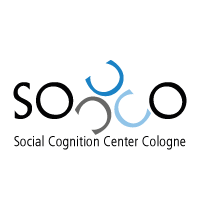DFG Research Unit FOR 2150 | Relativity in Social Cognition
Projects and Researchers | Phase 1
→ Click on a project for more detailed information.
→ Click here for an overview of all projects.
Relativity in Social Cognition | Projects
Evolutionary Foundations | Indirect Measures | Evaluative Ecology | Embodiment
Self-Control | Morality | Cooperation and Fairness | Central Project
- The Evolutionary Foundations project investigates antecedents of social comparisons with a species comparison approach. We investigate whether social comparison processes – or at least rudimentary forms therof - are present in other species than humans, more specifically in long-tailed macaques (Macaca fascicularis) and corvids (Corvus corone, Corvus corax). To do so, experiments are designed to be suitable for testing both the human and non-human subjects in comparable setups. [more]
- The Indirect Measures project aims at developing a new reliable and valid indirect measure of comparative processing by tapping into early processes of attentional adhesion to pertinent comparison standards. If successful, such a measure promises previously unavailable insights into the situational and interindividual fluctuations of the extent of comparative processing. [more]
- The Evoluative Ecology project investigates the interplay of comparative processes and the evaluative ecology (i.e., the distribution, frequency, and similarity of "good" and "bad" in the environment). This interplay is specifically important in the areas of person perception, evaluative learning, and self-serving biases. [more]
- The Embodiment project investigates the role of spatial representation in comparative thinking. Focus of this project is the link between verticality (up and down) and comparisons (upward and downward). [more]
- The Self-Control project seeks to shed new light on how social comparison shapes self-control and vice versa. To this end, we will combine a dual-motive perspective on self-control with a social-cognitive focus on social comparison to study moderators of assimilation and contrast, the choice of comparison standards, and the connection between engaging in self-control and subsequent social comparisons. [more]
- The Morality project investigates comparison processes in the moral domain. Although people often find it hard to accept that their moral judgments are relative, we aim to dispel in the current project and demonstrate that moral cognition is equally affected by comparative thinking as any other form of cognition. [more]
- The Cooperation and Fairness project integrates psychological research on social comparisons and economic research on cooperation and fairness to enlarge the perspective of comparison processes for human decision making in economic situations. Moving our focus beyond comparisons to direct interaction partners, we embed economic interactions in a wider social context. [more]
- The members of the Central project pursue additional research relating to the topics of the research unit, particularly social comparison, and develop new research questions and collaborations at the intersection of the individual projects. As such, the central project fosters the integration of the research unit as a whole. [more]








